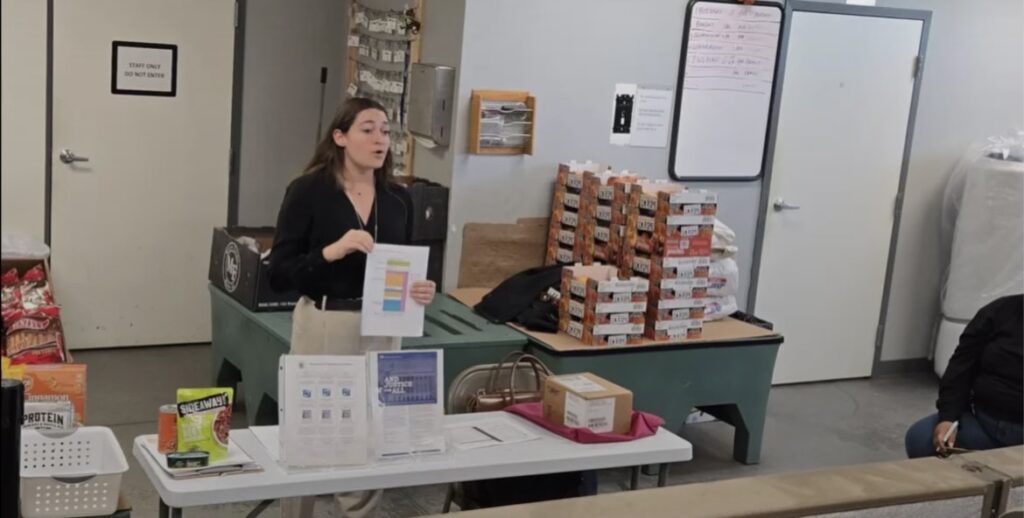By Claire White, MS, CHES – Health Promotion Coordinator
Since 2022, Second Harvest Food Bank has been offering Nutrition Education classes throughout its seven-county service region (Brevard, Lake, Marion, Orange, Osceola, Seminole, and Volusia).
These classes use the evidence-based curriculum geared towards limited resource households to teach neighbors of varying ages and backgrounds on topics such as stretching your food budget, making nutritious choices while eating out, and accessing healthy food options within your community, to name a few. Morgan Barnard, Nutrition Educator, has been educating Lake County residents since the conception of this program at Second Harvest. Her passion for nutrition was sparked in college when she learned how big food can impact an individual’s health. Though impactful, Morgan realized that not many conversations were being had on the topic, which motivated her to continue her education to learn more about bridging the gap between health and hunger.
Using reputable resources such as the CDC, USDA, FDA, the Academy of Nutrition and Dietetics, and scientific journals and publications, Barnard stays current on the latest nutrition research and guidelines on emerging trends and best practices in nutrition education. One of Barnard’s favorite lessons to teach in the Lake County community has been ‘Rethink Your Drink.’ This is because of how “interactive and eye-opening [the] lesson is for participants.” In this lesson, participants can visualize how much sugar they consume daily. A scale and a bag of sugar will enable them to measure the amount of sugar in their favorite everyday drinks, like soda, energy drinks, and flavored coffees. Barnard states that incorporating a visual aspect to the lesson, comparing the amount of sugar people are drinking versus the recommended amount, has a more significant impact on the participants, allowing them to “rethink their choices in real-time, which makes it so rewarding to teach.”
Seeing how participants incorporate these lessons into their daily lives is Barnard’s favorite aspect of this role. When handing out food during classes, she loves to engage with her participants by asking them how they would alter these dishes at home to make them their own. Barnard says, “It’s incredibly rewarding to know that they’re not only gaining important nutrition knowledge but also making lasting, healthy lifestyle changes.” Although it can be challenging to find the best way to understand and incorporate varying factors into classes, like culture, upbringing, finances, and personal health concerns, the challenge excites Barnard as it is rewarding to discover new methods of making the information accessible and applicable to everyone.
By engaging with nutrition education, our Central Florida neighbors can incorporate changes impacting their health, including reduced risk of chronic diseases, increased energy levels, reduced healthcare expenditures, and improved food security. Giving people the power to make informed decisions on what they eat can go a long way. To find in-person classes near you, please visit https://www.floridanutritioned.org/classes/.


